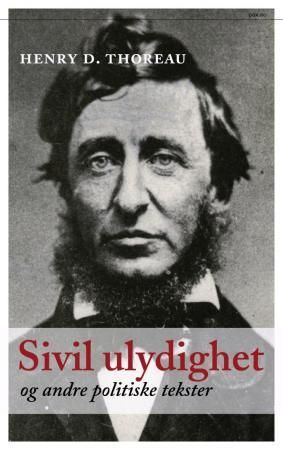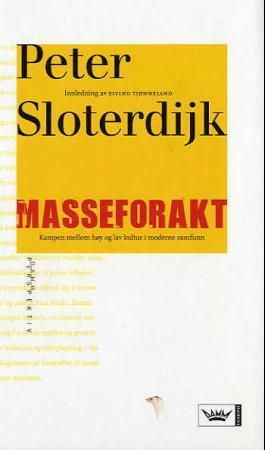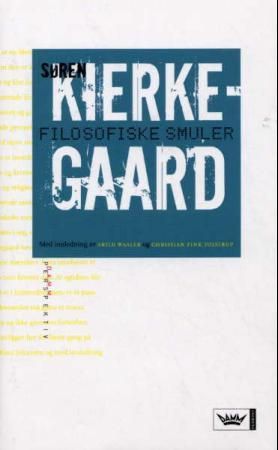Marius Hofstad
Sivil ulydighet og andre politiske tekster
av Henry David Thoreau (forfatter) og Kurt Narvesen (oversetter).
Pax 2011 Innbundet
Marius Hofstads eksemplar av Sivil ulydighet og andre politiske tekster
Lesetilstand
Har lest denneHylle
Ingen hylle
Lesedato
Ingen lesedato
Favoritt
Ingen favoritt
Terningkast
Ingen terningkast
Min omtale
Ingen omtale
Omtale fra forlaget
Henry D. Thoreau mest berømte tekst er utvilsomt det politiske essayet "Sivil ulydighet". I denne boka inngår dette, og to andre politiske tekster av Thoreau. Hans "Life Without Principle" (1837) inneholder en kritikk av maktmisbruk, men allerede i "The Commercial Spirit of Modern Times" (1837) formulerte han grunnlaget for sin politiske tenkning. I Norge har Thoreaus tanker vært aktuelle og anvendbare - fra miljøaksjonene i Mardøla og Alta til kampen mot kraftmastene i Hardanger. Henry D. Thoreau (1817-1862) er kjent for fortellingen Walden. Livet i skogene, men også for sine mange sivilisasjonskritiske og miljøpolitiske skrifter.
Bokdetaljer
Forlag Pax
Utgivelsesår 2011
Format Innbundet
ISBN13 9788253033983
EAN 9788253033983
Språk Norsk bokmål
Sider 109
Utgave 1
Finn boka på biblioteket
Finner du ikke ditt favorittbibliotek på lista? Send oss e-post til admin@bokelskere.no med navn på biblioteket og fylket det ligger i. Kanskje vi kan legge det til!
Bokelskeres terningkastfordeling
0 1 3 0 0 0Sitater fra dette verket
De nøler, de beklager, og noen ganger skriver de brev til regjeringen, men de gjør ingenting på alvor og ingenting som har noen virkning. De venter, fulle av god vilje, på at andre skal få slutt på ondskapen, slik at de ikke har grunn til å beklage seg over den lenger. Det meste de gjør, er å gi rettferdighetens forsvarere sin simple tilslutning og halvhjertete støtte og en lykkeønsking sånn i forbifarten.
(Fra Sivlil ulydighet)
La oss tenke over den måten vi lever våre liv på.
(Fra Livet uten prinsipper)
"Man kan knapt begå noen mer fatal feil enn å bruke mesteparten av sitt liv til å holde seg i live.
(...)
Det å komme inn i livet bare som en arving til en formue, er ikke å bli født, men snarere å bli dødfødt.
(Fra essayet "Livet uten prinsipper")
[...] At jeg nekter å betale skatt, skyldes ikke en spesiell post på skatteseddelen. Jeg ønsker simpelthen å nekte lydighet og troskap overfor staten. [...]
'Lydighet versus Rettskjensle'
Must the citizen ever for a moment, or in the least degree,
resign his conscience to the legislator?
Why has every man a conscience then?
I think that we should be men first, and subjects afterward.
It is not desirable to cultivate a respect for the law, so
much as for the right.
The only obligation which I have a right to assume
is to do at any time what I think right.
It is truly enough said that a corporation has no conscience;
but a corporation of conscientious men is a corporation
with a conscience.
Law never made men a whit more just; and, by means of their
respect for it, even the well-disposed are daily made the
agents of injustice.
A common and natural result of an undue respect for the law
is, that you may see
a file of soldiers, colonel, captain, corporal, privates,
powder-monkeys, and all,
marching in admirable order over hill and dale to the wars,
against their wills, ay, against their common sense and
consciences, which makes it very steep marching indeed ..
..They have no doubt that it is a damnable business in which
they are concerned; they are all peaceably inclined.
Now, what are they? Men at all?
or small movable forts and magazines, at the service of some
unscrupulous man in power?
The mass of men serve the state thus, not as men mainly,
but as machines, with their bodies.
They are the standing army, and the militia, jailers, constables,
posse comitatus [lokalpoliti], etc.
In most cases there is no free exercise whatever of the judgement
or of the moral sense; - but they put themselves on a level with
wood and earth and stones;
and wooden men can perhaps be manufactured that will serve the
purpose as well.
They have the same sort of worth only as horses and dogs.
Yet such as these even are commonly esteemed good citizens.
Legg inn et nytt sitat Se alle sitater fra verket


































